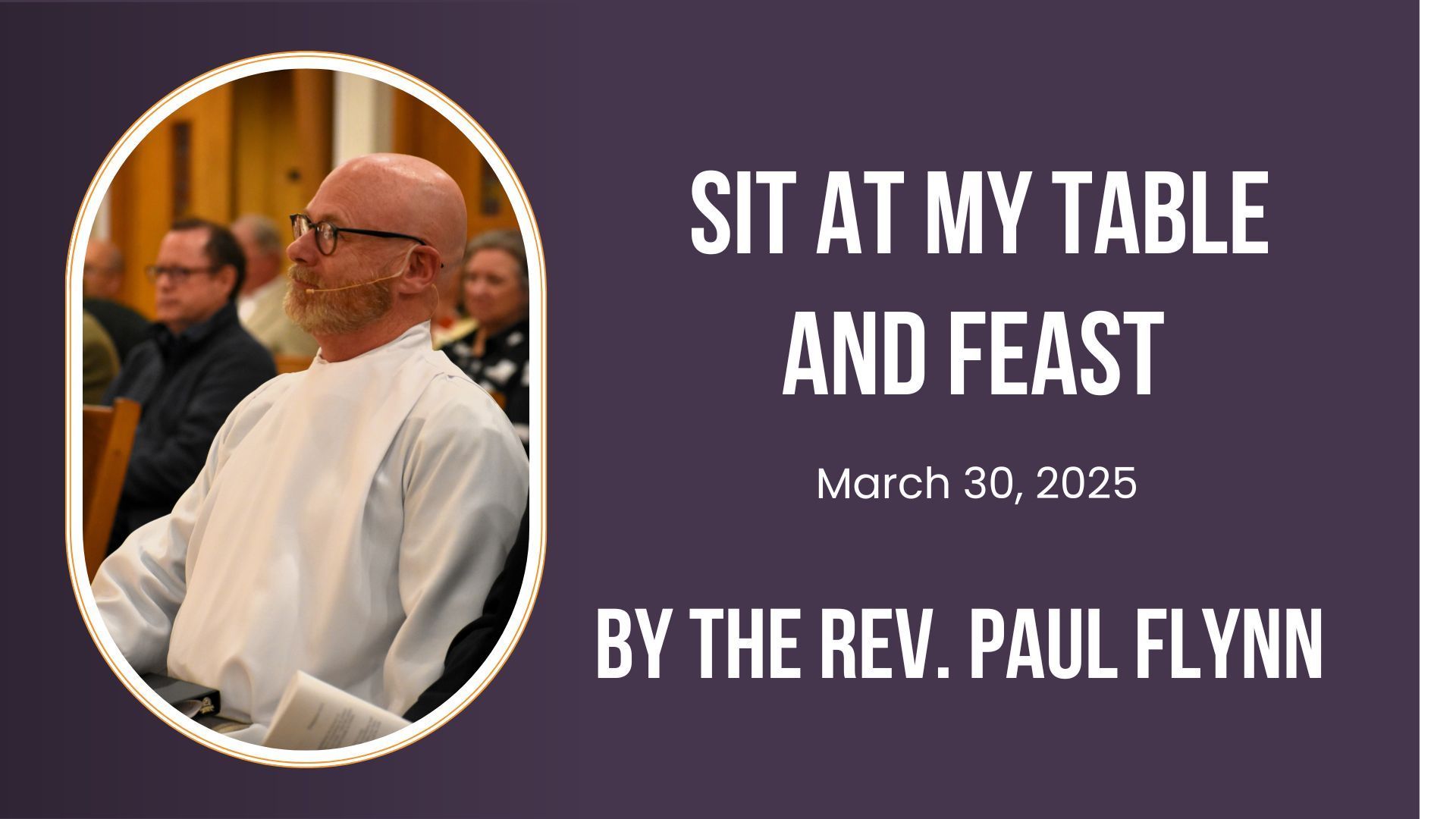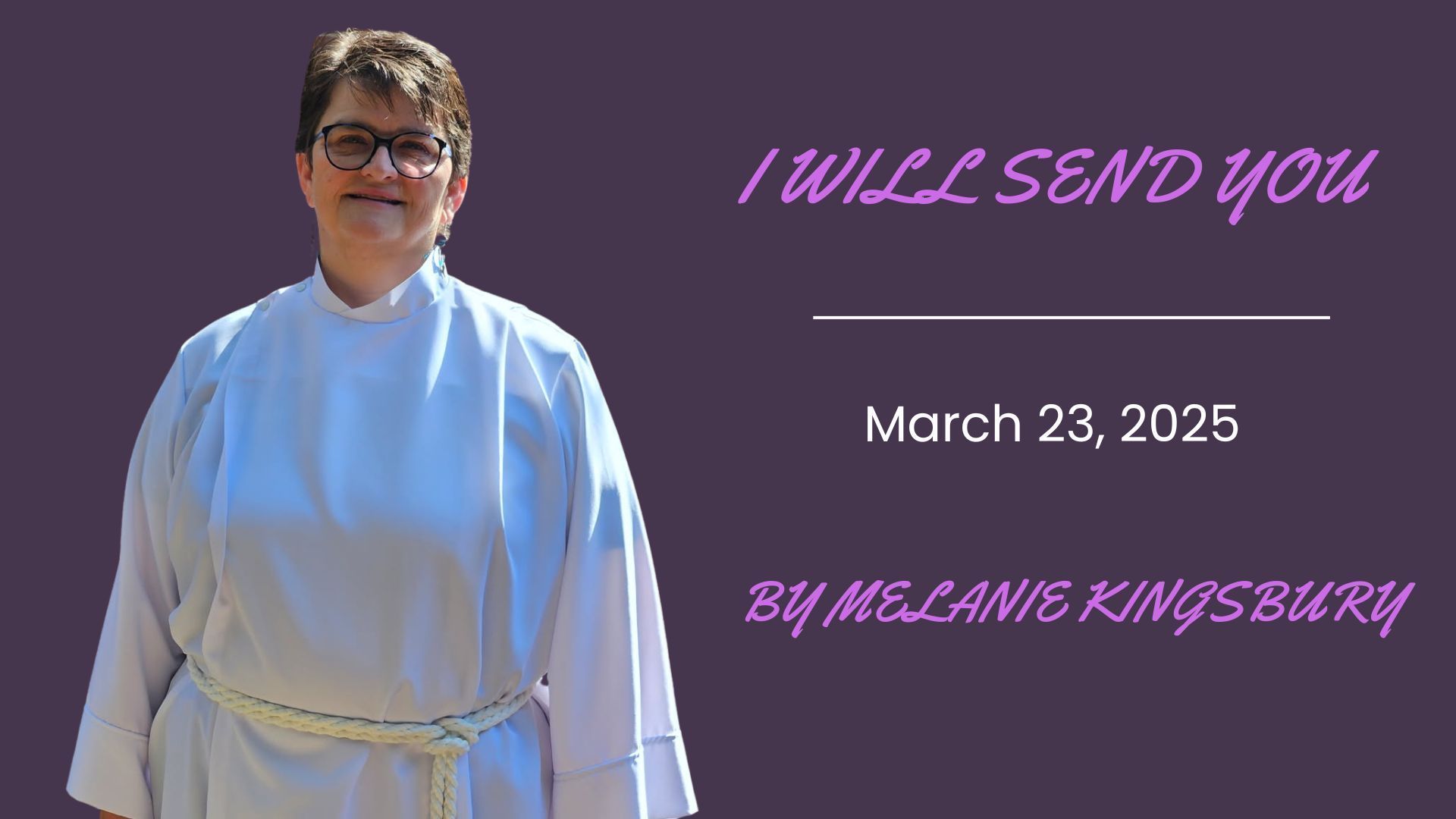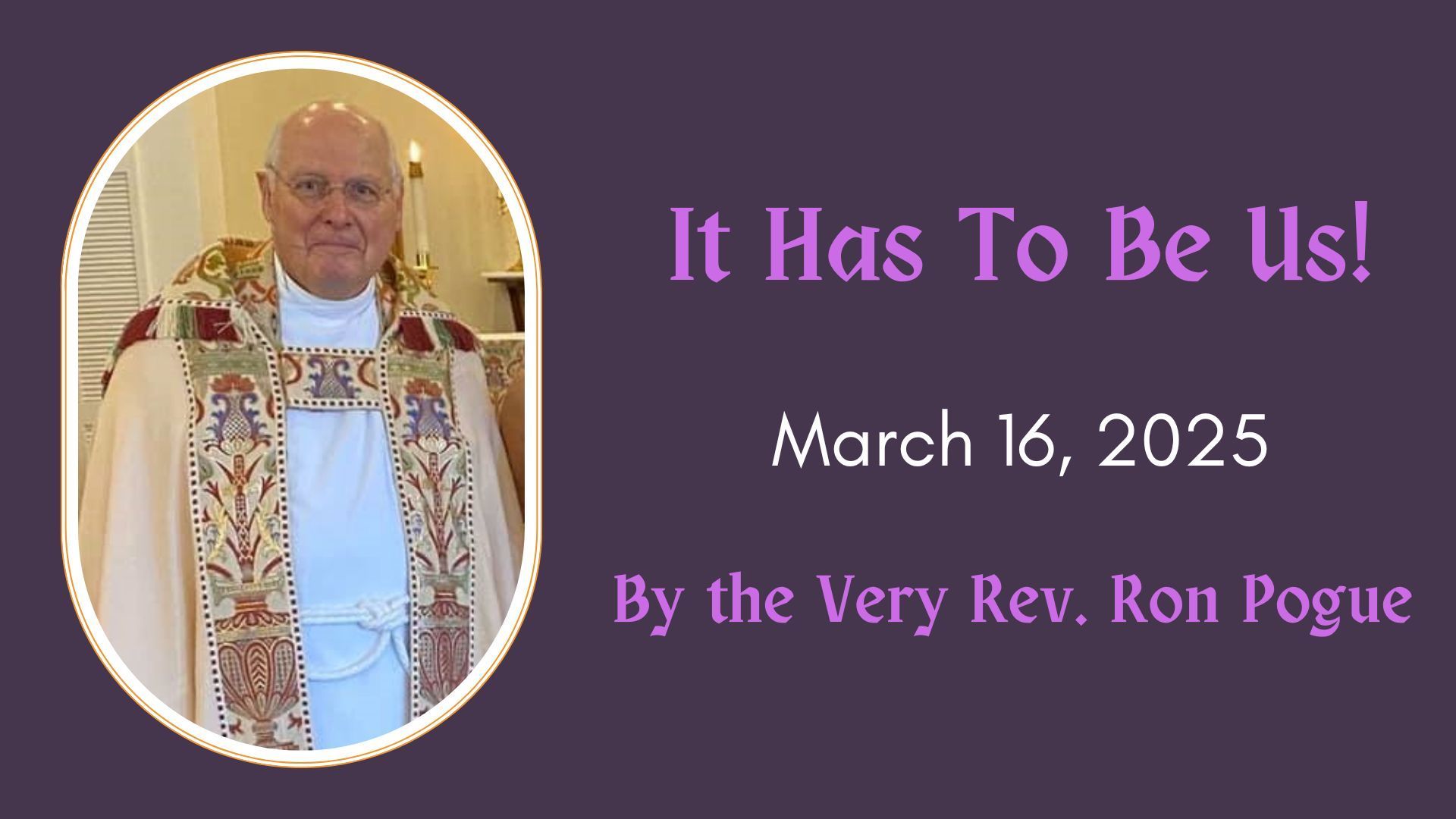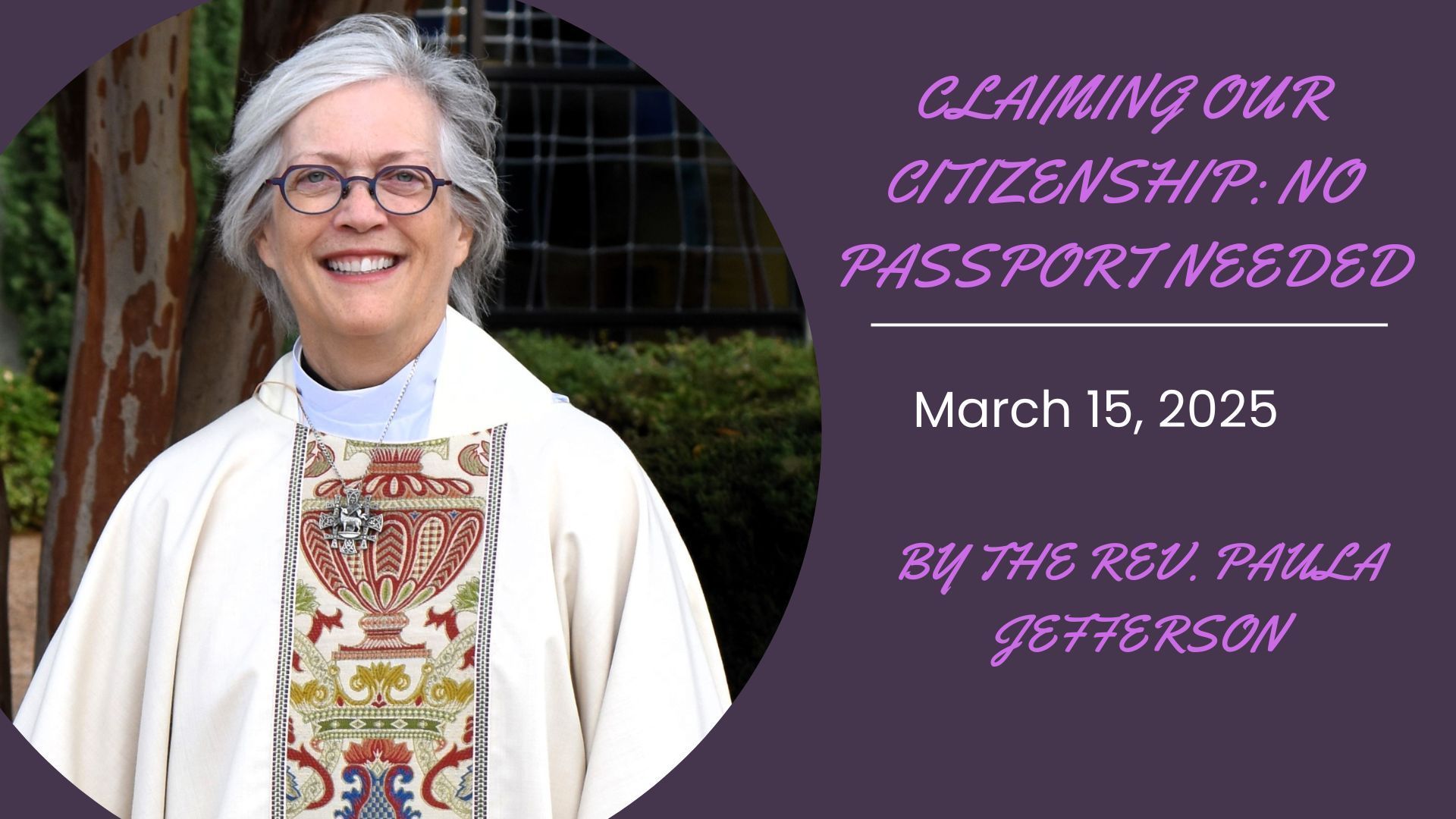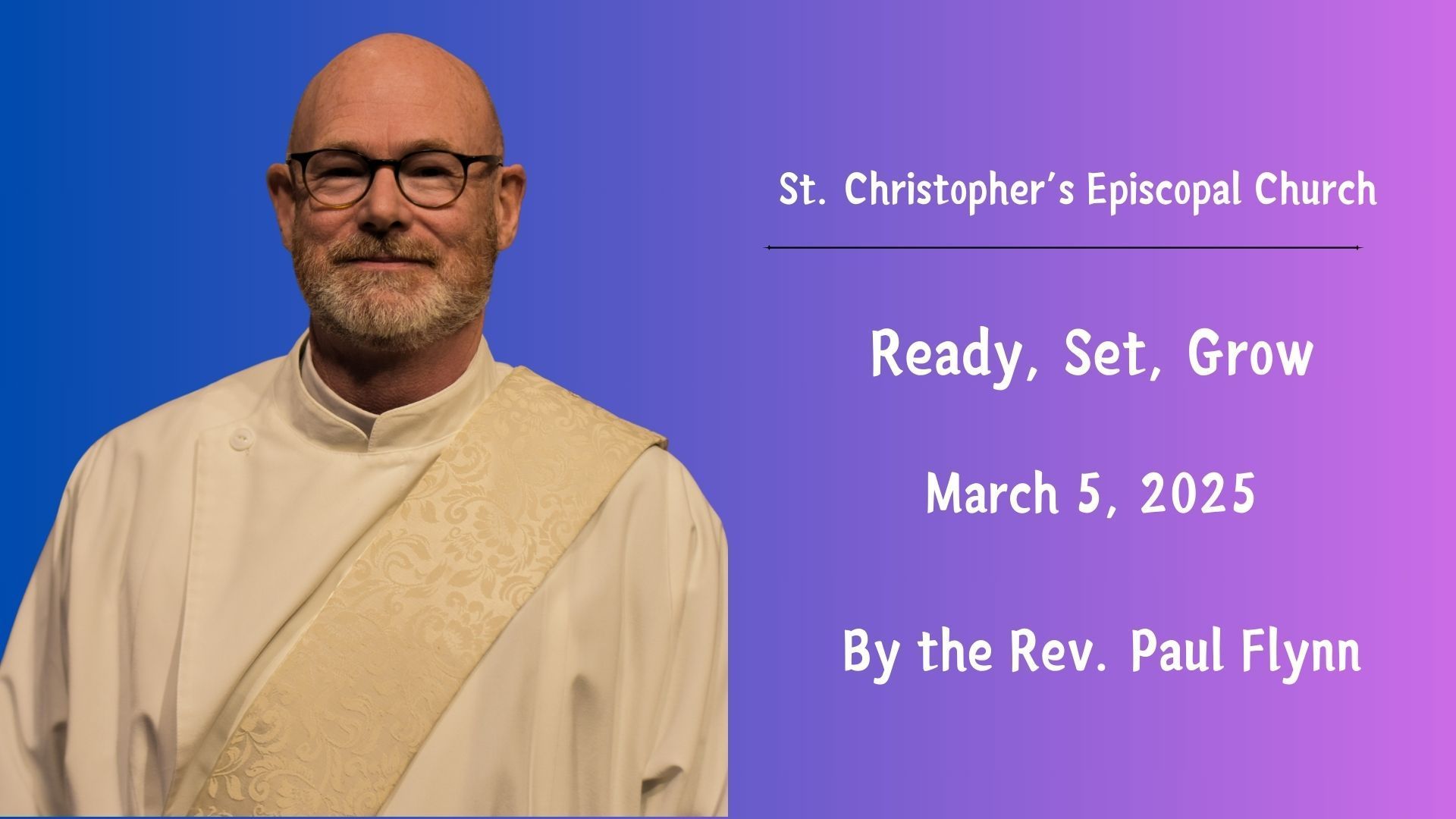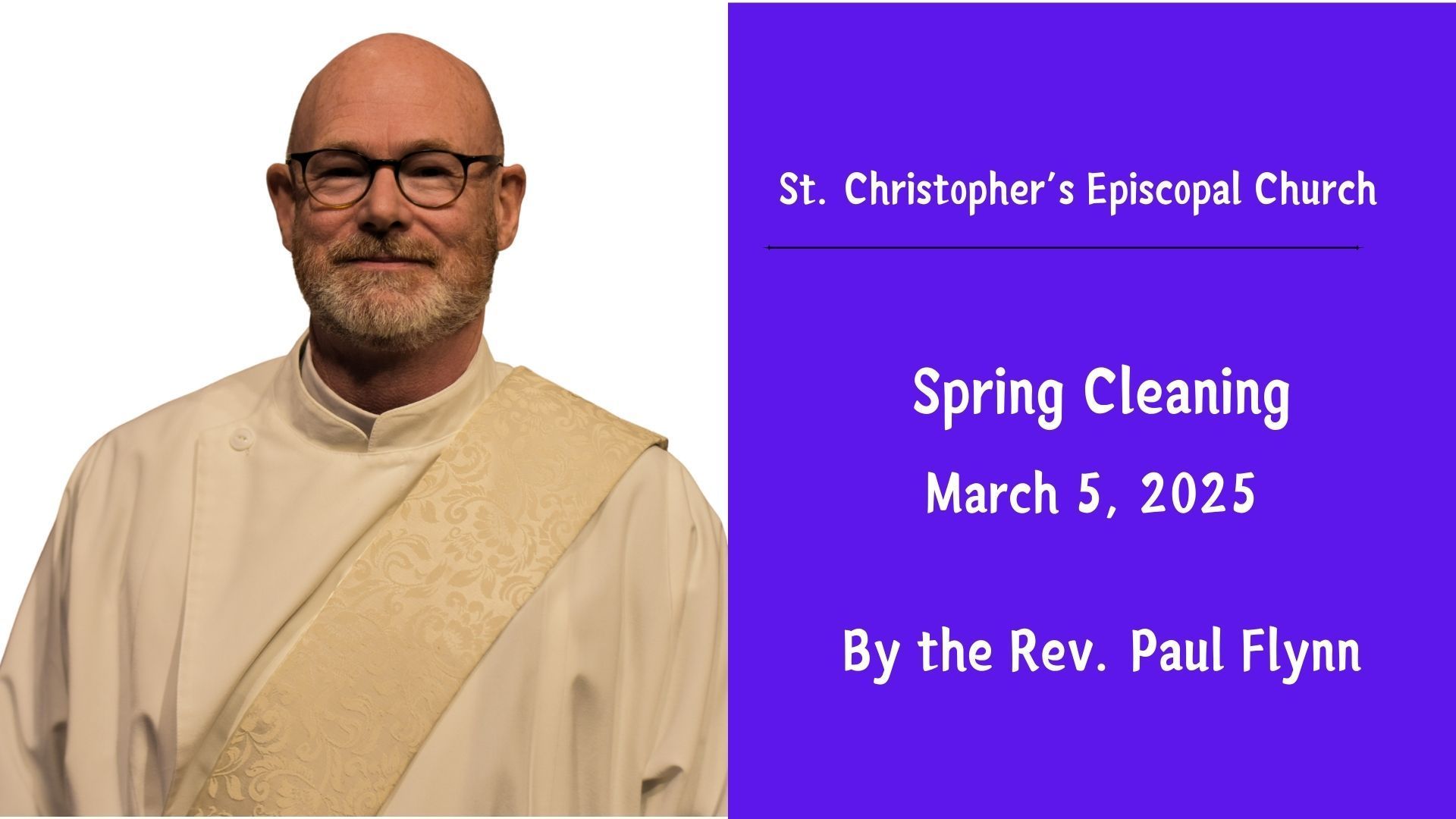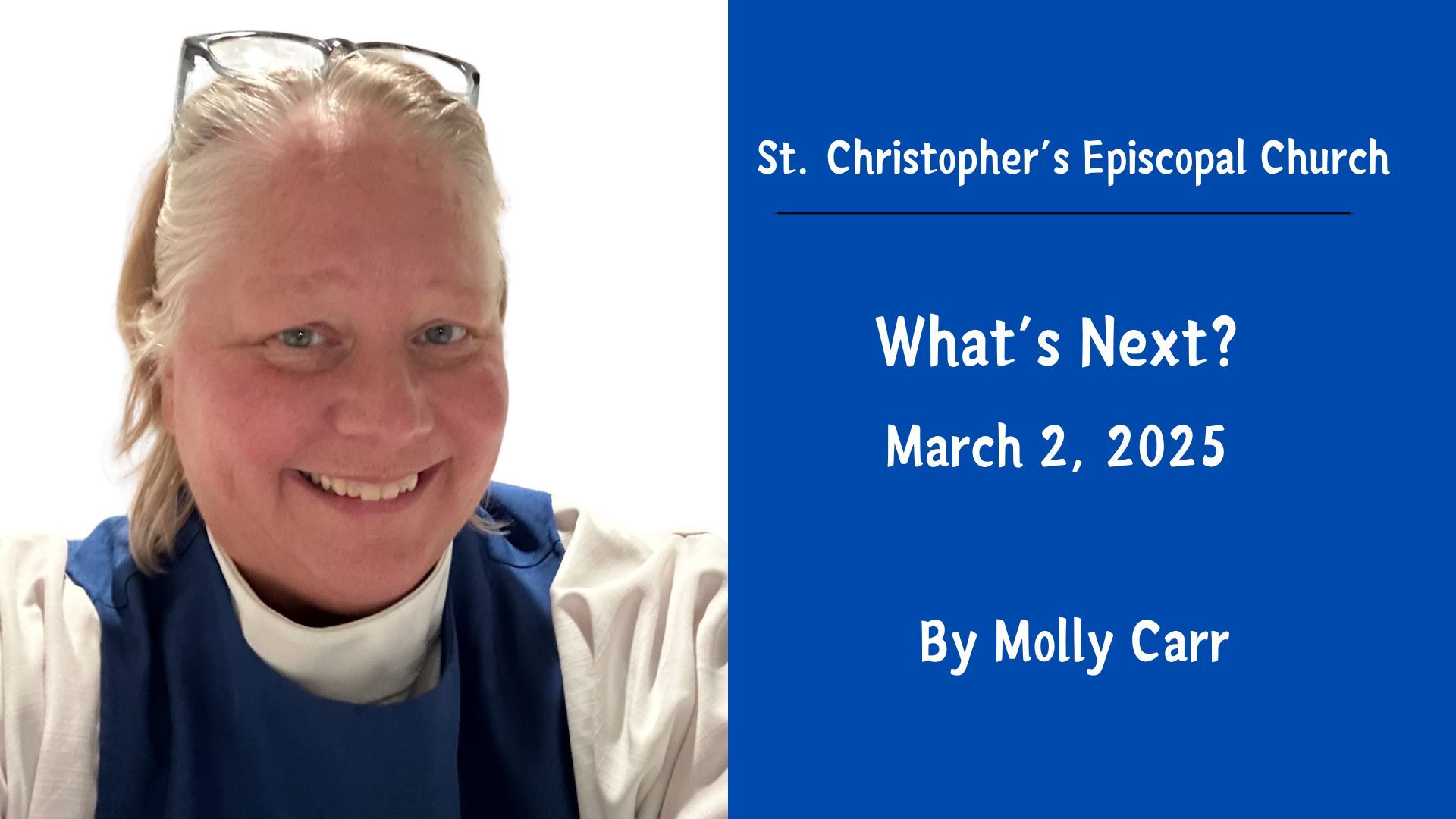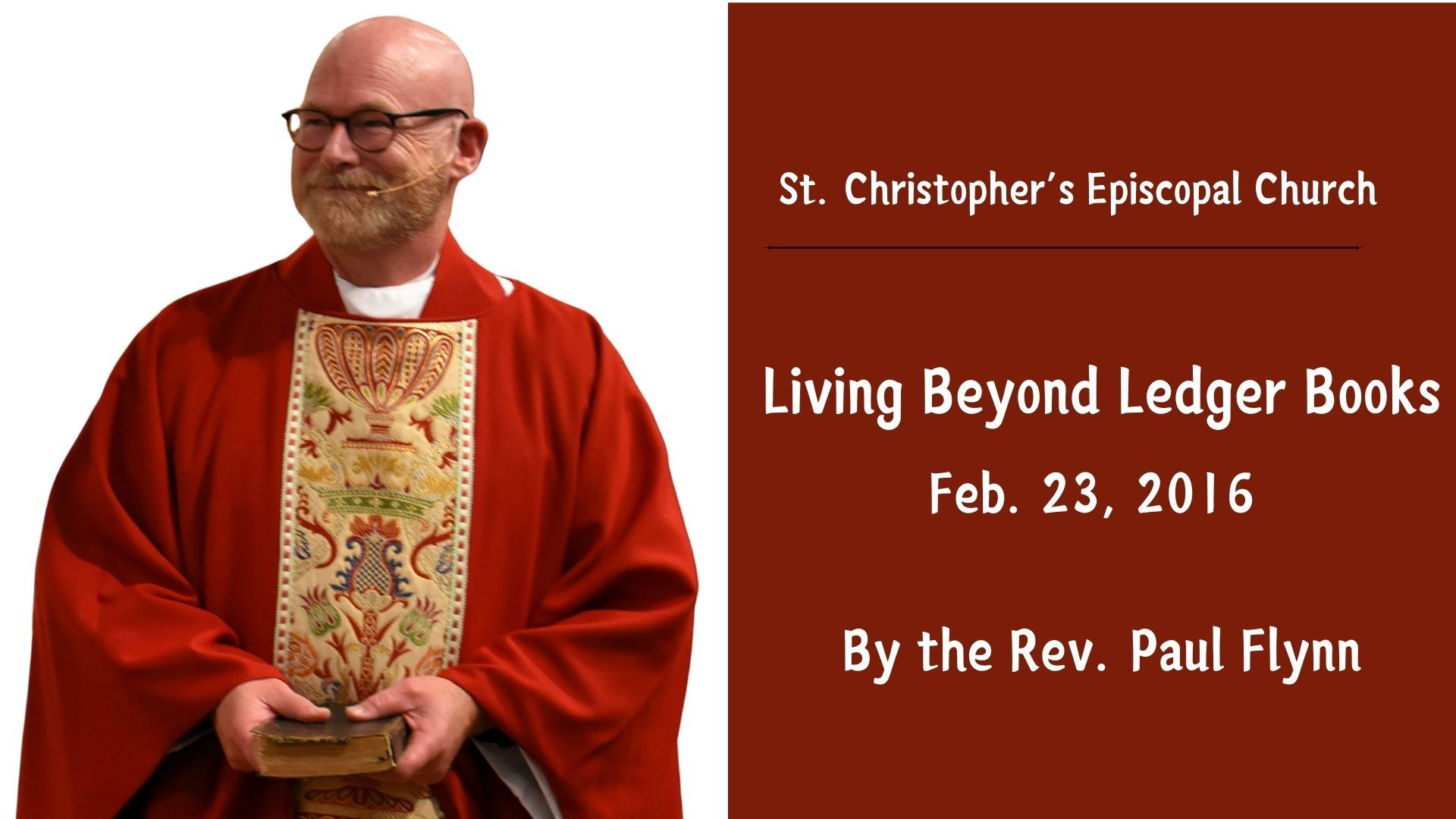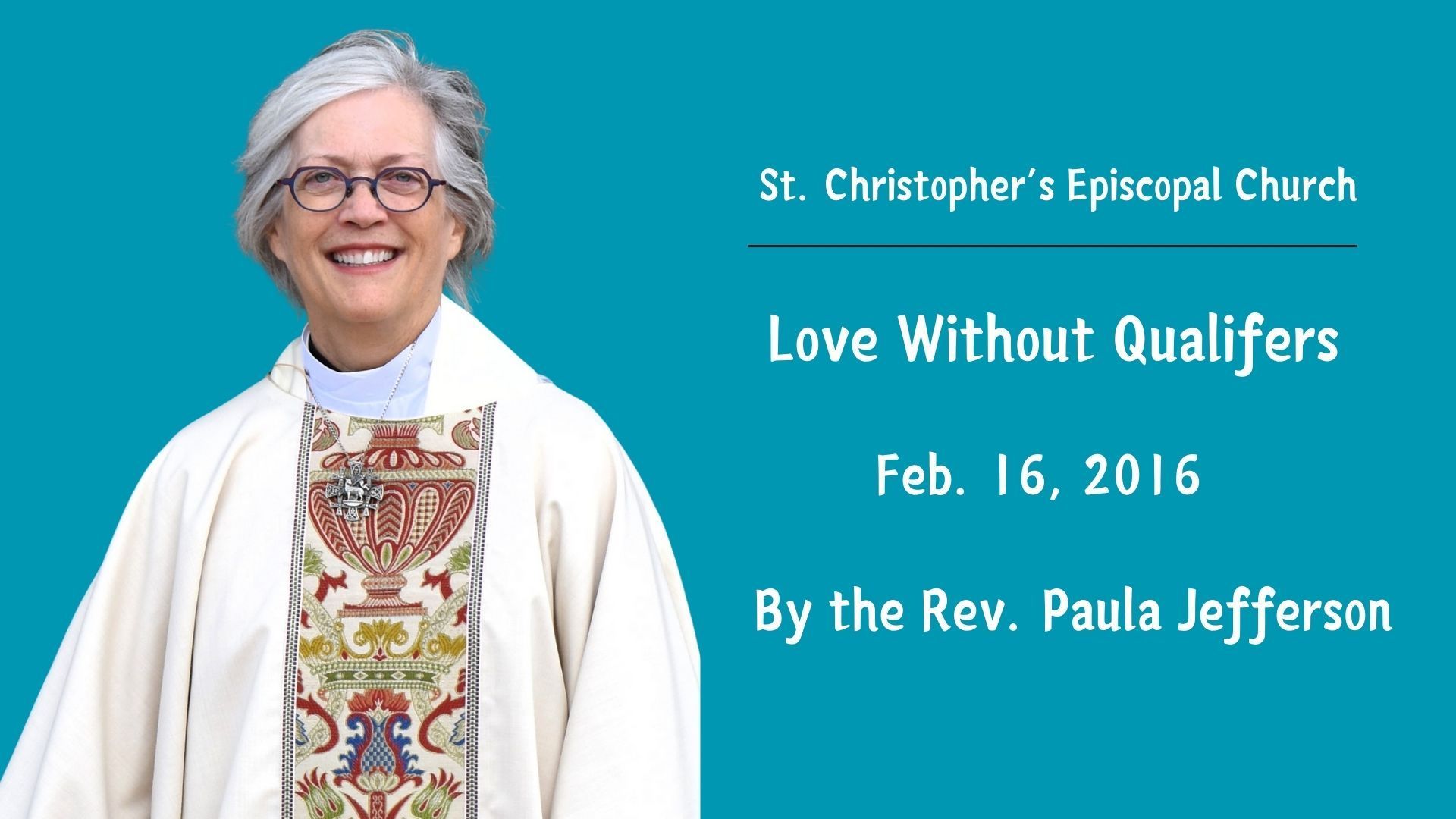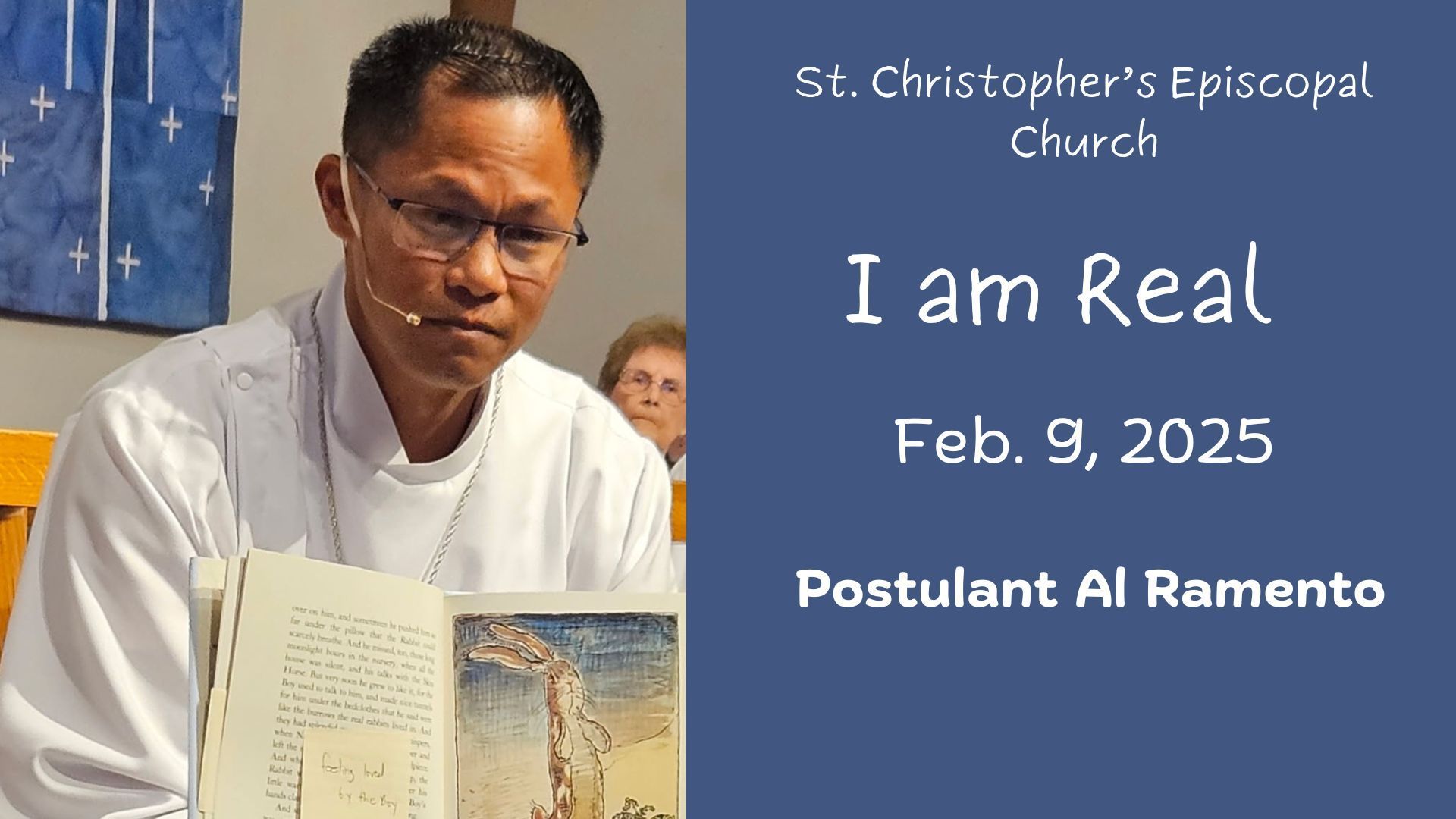First of all, I wanted to thank you all for having me here today. Not that I was coerced in any way by anyone you know and love. I really am happy to be here, and I don’t care how the opportunity came to be. That’s forgiveness right there.
I also wanted to mention one of your best ambassadors, Carolyn Law, because she holds a special place in my heart. She gave up a huge chunk of her life last May and June to journey with me through my discernment process. It seems only fair and right that I would come to her turf to offer my first post-discernment sermon!
Let us pray.
Gracious God,
Grant us the serenity to accept the things we cannot change;
the courage to change the things we can change;
and the wisdom to know one from the other. Amen.
As I plowed through commentaries and explanations about this gospel reading many of which started out with, “This is an impossible reading to talk about and Jesus never speaks more harshly than his words to Peter.” Furthermore, we hear tough words about pain and suffering, and it was clear to me the best route would be a sweet sermon on the lovely reading from Romans!
But no, preach the Gospel.
So reading the words and now hearing the words read, “Those who want to save their life will lose it, and those who lose their life for my sake will find it” had me recalling the writings on the wall of the accounting firm where I worked for 13 years. Now, I am not referring to the handwriting on the wall. We had actual writings on our walls. When we entered from the employee parking area, the first writing we saw as we entered and the last we saw as we exited was, “Be the change you seek in the world.” Then on another wall that was down the hall as we approached the breakroom for coffee, which we did numerous times during the day, we saw the reading, that said, “The best way to find yourself is to lose yourself in the service of others.”
That paradox rang true to me this week.
Those words never failed to make us pause and think, even when we weren’t totally feeling it. There were long, hard days at the end of tax seasons. Sometimes the “service of others” part seemed overwhelming as we got near the finish line.
We are often challenged to be followers of Jesus and to identify Christ at work in our lives and in the world. It can be hard to recognize Jesus even when he stands right in front of us. Maybe we even doubt who Jesus is, like Peter did when he tried to walk on the water. This passage marks a turning point in the story. We’re now hearing Jesus speak of the journey to Jerusalem where there will be suffering and death—his own.
The disciples have witnessed real miracles that they know point straight to God and the certain divinity of Jesus. They are distressed that Jesus was not turning out to be the Messiah they thought he would be, that he could conquer anything. Peter, especially, figured there must be a work around to the suffering and death Jesus described. This was not the future Peter envisioned for Jesus, or for himself as a follower. It is no wonder Peter cried out as he did and got himself crossways with Jesus. Peter did not want Jesus to die. He did not want his life and all that it meant for God’s people to be wasted.
Barbara Brown Taylor offers these words: “The deep secret of Jesus’ hard words to us is that our fear of suffering and death robs us of life, because fear of death always turns into fear of life, into a stingy cautious way of living that is not living at all. The deep secret of Jesus’ hard words is that the way to have abundant life is not to save it, but to spend it, to give it away, because life cannot be shut up and saved.”
Peter’s fear of death, I think a basic fear we all have to some extent if we are being honest, may well be what Jesus meant when he tells Peter that he is “concerned with human things.” We all will eventually face death—death from illness, age or even other kinds of death like the death or near death of a church through circumstances we never even have imagined. And like Peter, we often miss the point Jesus is making—that we must die in order to live. Giving up our lives is the way we gain the life to which Christ calls us. Another more confusing paradox…
Like Peter, we think we have a good idea of what following Jesus should look like, but it is often grounded in things of this world, not the things of God’s kingdom. Our limited human view prevents us from seeing the bigger picture of God’s grace extended to all of God’s people—all meaning all, not just the ones we approve of or like the best, not necessarily the ones who look like us or pray like us, or live like us. Or to use a phrase Paula shared with me some years ago, I have a gush of denominational pride to be a part of a church that welcomes everyone with “no exceptions” and means it.
So here’s the tension—we don’t always see how our actions and words, based on our limited view, impact others. We can’t see the hurt we cause or the doors we close. We cannot see how not bearing our cross can make another’s cross heavier. But, bearing our cross is exactly what Jesus calls us to do. We are not talking about the little inconveniences we jokingly refer to as ‘our cross to bear.’ We are called to real sacrifice of our selves—and as stated in the Book of Common Prayer Rite I, “We offer and present unto thee our souls and bodies to be reasonable holy and living sacrifice unto thee.” We fully surrender and through that act, we find complete freedom. We become free to be the holy people God has created us to be and intends for us to be.
Living into this tension, this paradox of giving up our lives to find them, is where Jesus meets us and calls us to new life. It might be a call to repentance -- to turn away from things of the world that distract and detract and turn toward a new direction fully trusting in God as we put one foot in front of the other.
Life requires risk. We have to walk out the door and face risk. We cannot have love without risking heartbreak, we cannot have friendship without the risk of rejection, so what do we do? We walk out into the crowd where we might bump into someone carrying a cross like ours or a different one-- it matters not. We are invited to follow and the path does not avoid death, it goes right through it. Right through our fears and worries. It may not be an easy road and we risk it all -- just like God risked becoming human and walking with us to give us life.
“…For those who want to save their life will lose it, and those who lose their life for my sake, will find it.”
It sounds crazy. And perhaps it is. But whoever said that following Jesus would make sense? AMEN.
St. Christopher's Episcopal Church
5709 Wedgwood Dr., Fort Worth, TX 76133
St. Christopher's is part of The Diocese of Texas, a diocese of The Episcopal Church.
© 2023 St. Christopher's Episcopal Church
SERVICE TIMES
CONTACT US
Mailing Address:
P.O. Box 34971
Fort Worth, TX 76162
817-926-8277
Email: office@stchrisfw.org



